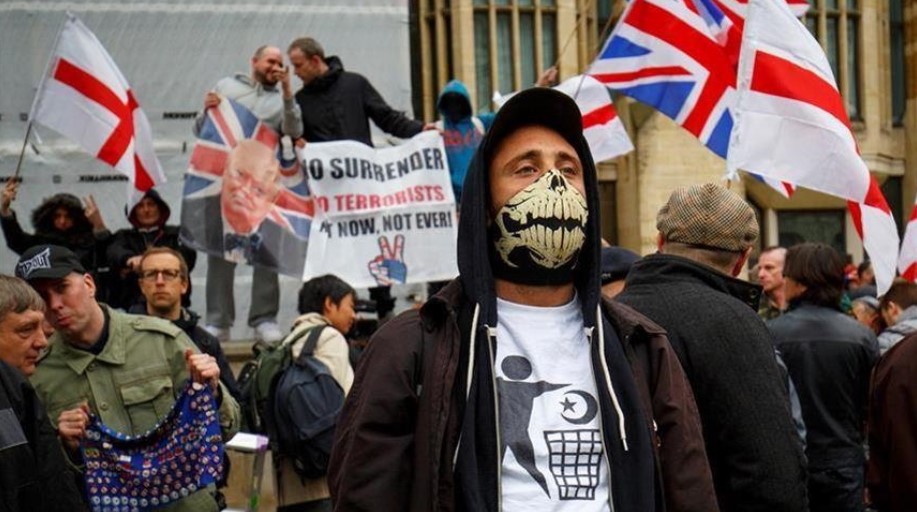Far-right and neo-Nazi groups are increasingly using major social media platforms to recruit young people, a new report revealed on Monday.
-The British far-right is now digitally-led and reflective of online culture – traditional structures have given way to social media platforms, influencers and ‘citizen journalists’ creating peer-to-peer radicalisation and a global community willing to crowdsource ‘micro-donations of time and effort- anti-racism group Hope Not Hate (HNH) said in its annual State of Hate report.
Nick Knowles, the chief executive of HNH, said in the report regarding the use of social media platforms that “a fertile recruitment ground for young neo-Nazis has been Instagram – its inadequate moderation and worrying algorithm recommendations are child protection issues that demand urgent action from the platform.”
The British Hand and the National Partisan Movement, two relatively new far-right groups, are known to be actively using Instagram and the messaging app Telegram to recruit members into its ranks.
Three teenage boys, who are allegedly members of The British Hand, are currently facing trial on terrorism charges.
COVID-19 and the ensuing lockdowns have played an important role in shifting right-wing extremism from the UK street to online platforms. HNH found that younger groups have found it easier to transition from operating in the street to exploring technology for their own collective gain while older and traditional groups have been left behind.
-The lockdown has had a profound effect on every part of our society and it’s no less the case on the far-right. Traditional organisations were already on the decline but lockdown exacerbated their inactivity- Knowles said, adding that -the new organisations and collectives that are emerging understand how to operate in this decentralised, self-directed environment.-
The study also found that the traditional far-right in the UK is currently at its weakest as a right-wing ideology has shifted into the political mainstream following the election of Boris Johnson as prime minister and Brexit. Mainstream politicians and commentators are now using language and rhetoric that was only used by the far-right in an attempt to embrace such narratives and win support.
Importantly, however, people sympathetic to the far-right cause are more likely to be influenced by certain individuals and figures rather than the actual ideology.
-The far-right has moved from being built around organisations to being built around people, and this has been amplified by our digital age. Tommy Robinson and Nigel Farage are examples of a new generation of far-right personalities.-
HNH described the government’s counter-extremism strategy as outdated and said it is in urgent need of an overhaul. The group has also urged social media giants Facebook and YouTube to take more effective action in banning far-right extremist groups from using their services and that the government proscribe these movements as terrorist organizations.
